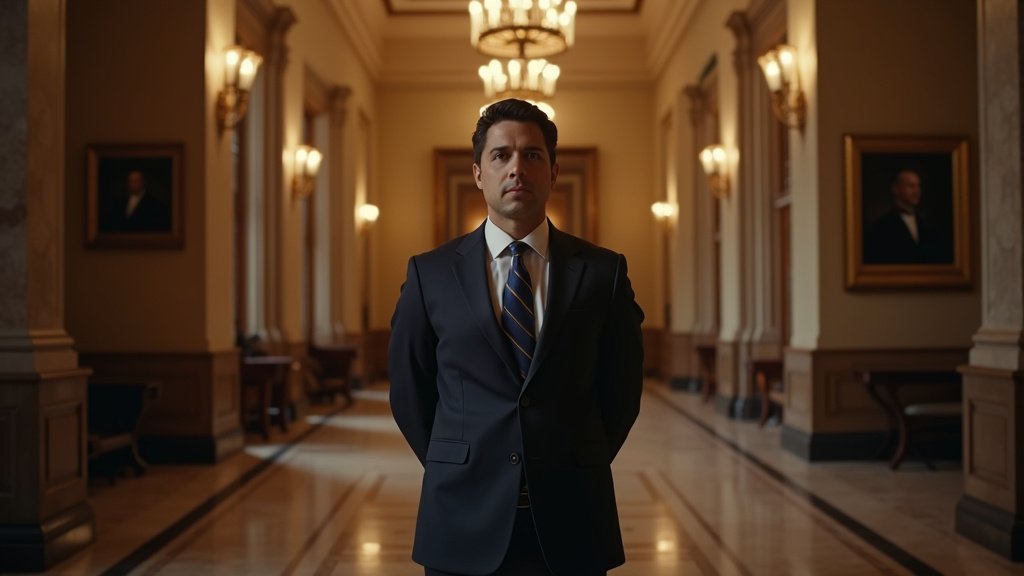Daughter of Infamous Serial Killer Enters Miami Beach Commission Race Amidst Public Scrutiny
MIAMI BEACH, FL – A compelling and controversial narrative is unfolding in the race for the Miami Beach Commission, as attorney Monique Pardo Pope has announced her candidacy for the Group 1 seat. Her campaign, focused on themes of public safety, community resilience, and economic opportunity, is shadowed by the notorious legacy of her father, Manuel Pardo, a former police officer convicted of murdering nine people in a brutal spree in 1986. The connection, brought to wider public attention by documentarian Billy Corben, has ignited debate about how past sins should intersect with present political aspirations in Miami.
The Shadow of a Serial Killer
Manuel Pardo, once a decorated Marine Corps veteran and police officer, devolved into a prolific serial killer over a 92-day period in early 1986. His victims, all but one male, were killed during drug-related robberies or disputes. Pardo’s crimes were further chilling due to his documented idolization of Adolf Hitler and possession of Nazi memorabilia, including a dog with a swastika tattoo. He was convicted of nine counts of first-degree murder and sentenced to death, ultimately being executed by lethal injection in December 2012. His case remains a dark chapter in South Florida’s crime history, with some speculating his story inspired the popular television series “Dexter.”
Pardo Pope’s Personal Narrative and Public Stance
Monique Pardo Pope, 44, a Hialeah-born lawyer and small business owner who now resides in Miami Beach, acknowledges the profound impact her father’s actions had on her life. She states that her world was “turned upside down when I was four years old.” In public statements and social media, she has spoken of praying for the victims’ families daily and has found a path to personal peace by forgiving her father. She emphasizes that while his actions shaped her childhood, they “do not define who I am or the values I bring to this city.”
Despite her efforts to distance herself from her father’s crimes, her past public tributes to him, referring to him as her “hero” and “guiding light,” have resurfaced. Pardo Pope has characterized the attention on her father’s legacy as “attacks” and “smears,” asserting that she has “carried this burden my entire life, and I will not be shamed or intimidated now.”
A Platform for Miami Beach
Pardo Pope’s campaign centers on a platform aimed at enhancing the quality of life for Miami Beach residents. She advocates for proactive public safety measures, increased support for law enforcement, and investment in mental health and homelessness services. Economically, her proposals include fighting for workforce housing, supporting first-time homebuyers, and implementing fair taxation. She also champions the revitalization of blighted corridors and supporting local businesses. Addressing infrastructure challenges such as flooding and congestion while preserving the city’s historic character is another key plank of her platform.
Pardo Pope highlights her community involvement, including her roles as Co-Chair of the Nicklaus Children’s Young Ambassadors and a member of the Miami Beach Commission for Women, as evidence of her commitment to public service. She describes her background as reflecting “the power of hard work and opportunity” and aims to apply her legal and business experience to City Hall, focusing on listening to neighbors, seniors, and small business owners.
The Political Landscape and Public Debate
Pardo Pope is one of seven candidates vying for the Group 1 seat on the Miami Beach Commission, a position being vacated by Commissioner Kristen Rosen Gonzalez, who is running for Mayor. The general election is scheduled for November 5, 2025. Her candidacy has drawn significant media attention, particularly after documentarian Billy Corben released a video highlighting her father’s identity as a serial killer and her past social media posts. Pardo Pope has publicly challenged Corben’s reporting, accusing him of defamation and misinformation, while Corben maintains the accuracy of his statements.
The debate surrounding Pardo Pope’s candidacy raises broader questions about the influence of family history in politics. While some argue that voters should judge candidates solely on their present qualifications and platforms, others believe a candidate’s background, including their family’s past, is a relevant consideration. The situation presents a unique challenge for voters in Miami Beach, forcing them to weigh Pardo Pope’s stated intentions and policy goals against the deeply disturbing history of her father.
A Defining Election Moment
As the Miami Beach Commission election approaches, Monique Pardo Pope’s campaign represents a complex intersection of personal history, public service, and political scrutiny. Her ability to connect with voters and persuade them to look beyond her father’s heinous crimes will be a critical factor in her electoral prospects. The outcome will not only determine who occupies the Group 1 seat but may also reflect the community’s evolving stance on how past legacies shape present political opportunities and the very definition of what it means to be a leader in a vibrant Miami setting. Her candidacy has undoubtedly made her one of the figures shaping the narrative and potentially setting new trends in local political discourse.





